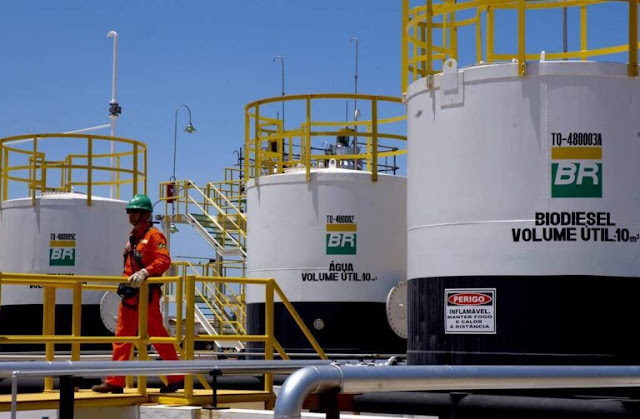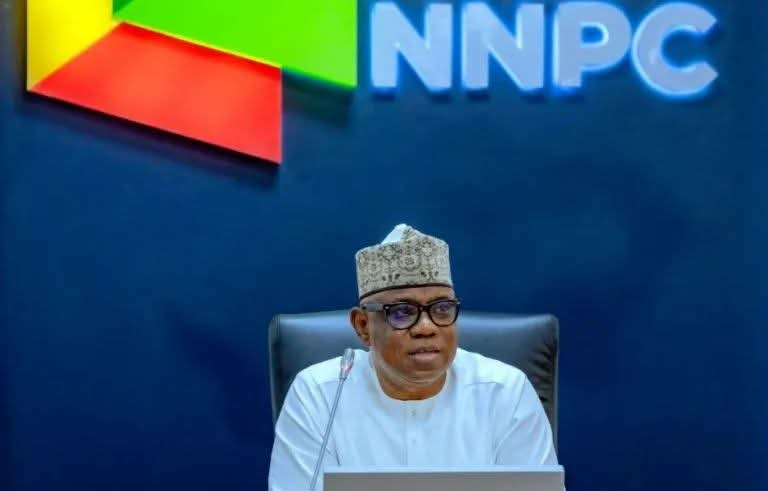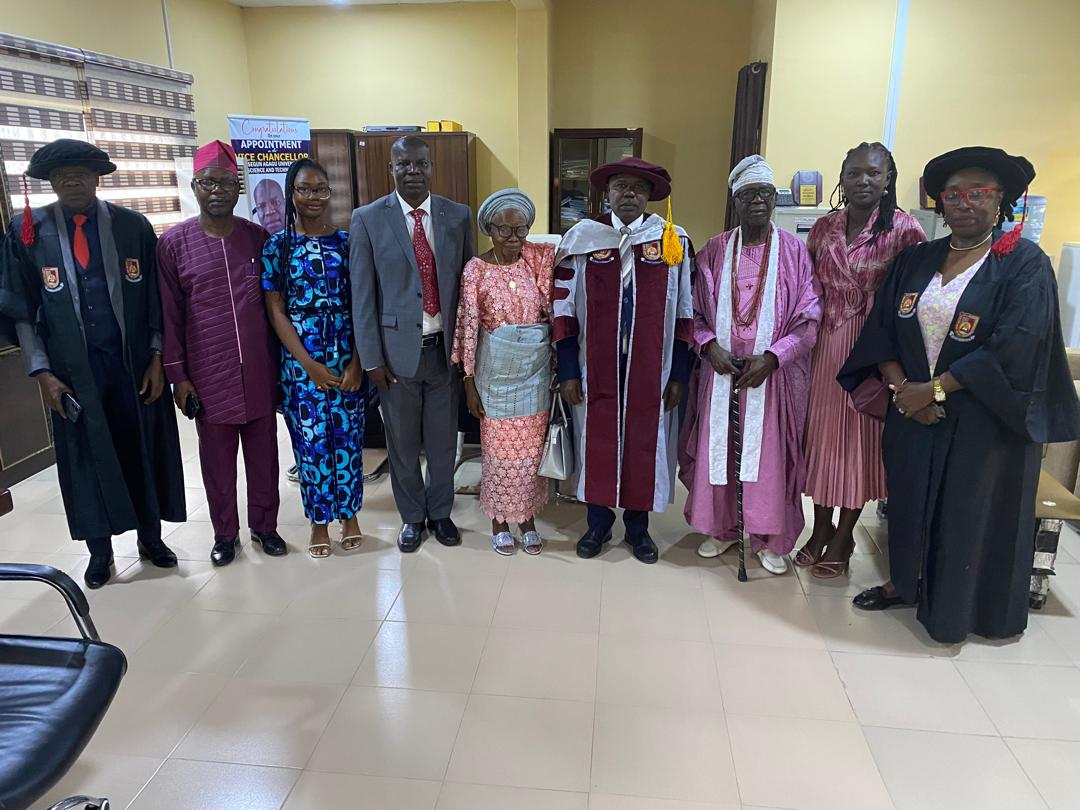In a significant move to bolster Nigeria’s position in the global energy market, the Nigerian National Petroleum Company Limited (NNPC Ltd.) has announced that Petrobras, Brazil’s state-owned energy giant, is exploring new opportunities in Nigeria’s upstream oil and gas sector, with a particular emphasis on deepwater and ultra-deep-water ventures. This development was revealed in a statement shared on the social media platform X on Thursday, August 28, 2025, highlighting a high-level meeting between NNPC Ltd.’s Executive Vice-President for Upstream, Udy Ntia, and Petrobras Chief Executive Officer, Magda Chambriard. The meeting took place on the sidelines of President Bola Tinubu’s state visit to Brazil, marking a pivotal moment in the revitalization of energy cooperation between Nigeria and Brazil. This article provides an in-depth exploration of the engagement, its implications for Nigeria’s oil and gas sector, and the broader context of Nigeria’s energy ambitions.
A Strategic Engagement in Brazil
The meeting between Udy Ntia and Magda Chambriard was a key highlight of President Tinubu’s state visit to Brazil, which aimed to strengthen bilateral ties between the two nations. The discussions focused on rebuilding energy cooperation, with a specific invitation for Petrobras to re-establish its presence in Nigeria following its withdrawal from the country in 2021. Petrobras, one of the world’s leading energy companies with expertise in deepwater exploration and production, had previously operated in Nigeria but divested its assets as part of a strategic portfolio realignment. The renewed interest in Nigeria signals a potential shift in Petrobras’ global strategy and underscores Nigeria’s attractiveness as an investment destination.
According to NNPC Ltd.’s statement, the engagement centered on identifying fresh areas of collaboration, particularly in Nigeria’s deepwater and ultra-deep-water prospects. These high-potential assets, located offshore in the Niger Delta, represent some of the most promising opportunities for increasing Nigeria’s crude oil and gas production. The talks align with NNPC Ltd.’s broader drive to build strategic, mutually beneficial partnerships within the global energy landscape, a priority that has gained urgency under the leadership of Group Chief Executive Officer Bayo Ojulari.
The focus on deepwater and ultra-deep-water ventures is particularly significant given the technical and financial challenges associated with these operations. Deepwater projects require substantial capital investment, advanced technology, and operational expertise, areas where Petrobras has a proven track record. By leveraging Petrobras’ capabilities, NNPC Ltd. aims to unlock the potential of Nigeria’s offshore reserves, which are critical to achieving the country’s production targets.
Nigeria’s Investment Appeal: Reserves and Regulatory Framework
NNPC Ltd.’s statement emphasized Nigeria’s compelling case for investment in the oil and gas sector. With 37 billion barrels of proven oil reserves and an estimated 200 trillion cubic feet of natural gas reserves, Nigeria ranks among the world’s top resource-rich nations. These reserves, combined with a favorable legal and regulatory framework, position Nigeria as a prime destination for international oil companies (IOCs) seeking high-return opportunities.
The Petroleum Industry Act (PIA) of 2021 has been a game-changer for Nigeria’s oil and gas sector, introducing reforms to enhance governance, attract investment, and improve operational efficiency. The PIA established a clearer fiscal regime, streamlined licensing processes, and introduced incentives such as royalty reductions and tax breaks for deepwater projects. These measures have reduced some of the uncertainties that previously deterred investment, making Nigeria more competitive in the global energy market.
NNPC Ltd. highlighted the role of these incentives in attracting significant investment, noting that the government’s commitment to policy stability has created a conducive environment for IOCs. The company’s engagement with Petrobras reflects a broader strategy to court global energy players, leveraging Nigeria’s vast resources and reformed regulatory framework to drive upstream development.
Petrobras’ Potential Re-Entry into Nigeria
Petrobras’ interest in re-entering Nigeria’s upstream sector marks a significant opportunity for both parties. The Brazilian energy giant has a strong track record in deepwater exploration and production, particularly in Brazil’s pre-salt basins, which share geological similarities with Nigeria’s offshore fields. Petrobras’ expertise in ultra-deep-water operations could complement NNPC Ltd.’s ambitions to ramp up production from assets such as the Bonga, Egina, and Akpo fields, which are among Nigeria’s most productive deepwater projects.
The company’s withdrawal from Nigeria in 2021 was part of a broader divestment strategy to focus on core assets in Brazil and reduce exposure to challenging operating environments. However, the renewed interest in Nigeria suggests that Petrobras sees value in the country’s upstream opportunities, particularly in light of the PIA’s reforms and the global demand for oil and gas. The discussions with NNPC Ltd. indicate that Petrobras is exploring a range of collaboration models, including joint ventures, farm-ins, and partnerships, to re-establish its presence in Nigeria.
The focus on deepwater and ultra-deep-water ventures aligns with global trends in the oil and gas industry, where offshore projects are increasingly seen as high-potential opportunities despite their complexity. Nigeria’s deepwater fields are estimated to hold significant untapped reserves, but their development has been hampered by high costs, security challenges, and regulatory uncertainties. Petrobras’ expertise and financial capacity could help overcome these barriers, enabling NNPC Ltd. to unlock new production streams and boost Nigeria’s oil output.
The São Paulo Business Roundtable: A Platform for Collaboration
In addition to the meeting with Petrobras, NNPC Ltd. participated in a high-level Business Roundtable hosted by Citi Brasil in São Paulo, held alongside President Tinubu’s state visit. Led by Udy Ntia, the NNPC Ltd. delegation engaged with senior government officials, industry leaders, and top business executives from both Nigeria and Brazil. The roundtable provided a platform to explore fresh avenues for partnership, advance concrete pathways for trade, enhance investment flows, and promote infrastructure financing between the two nations.
The São Paulo event underscored the strategic importance of Nigeria-Brazil relations in the energy sector. Both countries are major oil producers and share common challenges, including the need to balance domestic energy needs with export commitments and navigate the global transition to cleaner energy sources. The roundtable discussions highlighted opportunities for collaboration in areas such as technology transfer, capacity building, and infrastructure development, which could strengthen the energy sectors of both nations.
For NNPC Ltd., the roundtable was an opportunity to showcase Nigeria’s investment potential and build relationships with Brazilian businesses. The company’s participation reflects its proactive approach to cultivating partnerships with international stakeholders, a strategy that is critical to unlocking the full potential of Nigeria’s oil and gas sector. By engaging with global players like Petrobras and Citi Brasil, NNPC Ltd. aims to position Nigeria as a hub for energy investment in Africa.
The Broader Context: Nigeria’s Oil and Gas Sector
Nigeria’s oil and gas sector is the backbone of the country’s economy, contributing approximately 80 percent of government revenue and over 90 percent of export earnings. However, the sector has faced significant challenges in recent years, including declining production, pipeline vandalism, oil theft, and underinvestment. Crude oil output has fluctuated between 1.2 million and 1.8 million barrels per day (bpd), well below the government’s target of 2 million bpd or more. These challenges have been compounded by global market dynamics, including volatility in oil prices and the growing emphasis on renewable energy.
The PIA has been a critical step toward addressing these issues, providing a framework for modernizing the sector and attracting investment. The transition of NNPC Ltd. into a limited liability company under the PIA has introduced a commercial orientation, enabling the company to operate with greater efficiency and accountability. Under the leadership of Bayo Ojulari, NNPC Ltd. has prioritized strategic partnerships, operational excellence, and the revitalization of key assets, such as Nigeria’s four state-owned refineries.
The engagement with Petrobras aligns with these priorities, as it seeks to leverage international expertise to boost upstream production. Deepwater and ultra-deep-water projects are particularly critical, as they account for a significant portion of Nigeria’s untapped reserves. However, these projects require substantial capital investment, estimated to be in the billions of dollars, as well as advanced technology and robust security measures to mitigate risks such as piracy and militancy in the Niger Delta.
Economic and Strategic Implications
The potential partnership with Petrobras has far-reaching implications for Nigeria’s economy and energy sector. Increased investment in deepwater and ultra-deep-water projects could significantly boost crude oil production, generating additional revenue for the government and strengthening the naira, which has faced persistent depreciation. Higher production would also enable Nigeria to meet its OPEC quota and fulfill export commitments, enhancing its position in the global energy market.
Moreover, the collaboration could drive job creation, technology transfer, and capacity building in Nigeria’s oil and gas sector. Petrobras’ expertise in deepwater operations could enhance the technical capabilities of local operators, fostering a more skilled workforce and reducing reliance on foreign expertise. The partnership could also pave the way for broader cooperation between Nigeria and Brazil in areas such as renewable energy, infrastructure development, and trade.
From a strategic perspective, the engagement with Petrobras reflects Nigeria’s ambition to diversify its energy partnerships. While IOCs such as Shell, ExxonMobil, and TotalEnergies have been dominant players in Nigeria’s oil sector, the involvement of Petrobras introduces a new dynamic, bringing in a state-owned company with a unique perspective and expertise. This diversification could enhance competition, drive innovation, and create more opportunities for local participation in the sector.
Challenges and Considerations
Despite the promising prospects, the potential partnership with Petrobras faces several challenges. Deepwater and ultra-deep-water projects are capital-intensive and carry significant operational risks, including environmental concerns and security threats in the Niger Delta. The government and NNPC Ltd. will need to ensure a stable and secure operating environment to attract and sustain Petrobras’ investment.
Regulatory and political risks also remain a concern. While the PIA has improved the investment climate, issues such as bureaucratic delays, policy inconsistencies, and community unrest could deter investors. The government’s commitment to favorable tax incentives and a solid legal framework will be critical to maintaining Petrobras’ interest and ensuring the success of the partnership.
Additionally, the global energy transition poses a long-term challenge for Nigeria’s oil and gas sector. As the world shifts toward renewable energy, Nigeria must balance its reliance on hydrocarbons with investments in cleaner energy sources. Petrobras, with its growing focus on renewables in Brazil, could play a role in supporting Nigeria’s transition, potentially through collaboration in gas development or renewable energy projects.
Stakeholder Reactions and Public Sentiment
The announcement of Petrobras’ interest in Nigeria’s upstream sector has generated optimism among industry stakeholders and analysts. Many view the potential partnership as a vote of confidence in Nigeria’s oil and gas sector and a testament to the success of the PIA’s reforms. On social media platforms like X, discussions have focused on the economic benefits of increased oil production and the potential for job creation in the Niger Delta.
However, there is also skepticism about the government’s ability to deliver on its promises, given past challenges in attracting and retaining investment. Nigerians have expressed concerns about the need for transparency, accountability, and equitable benefits from oil projects, particularly for host communities in the Niger Delta. The government and NNPC Ltd. will need to address these concerns to maintain public trust and ensure the success of the partnership.
The Road Ahead
As NNPC Ltd. and Petrobras move forward with their discussions, the focus will be on translating interest into concrete commitments. This will involve detailed negotiations on investment terms, operational roles, and risk-sharing mechanisms. NNPC Ltd.’s participation in the São Paulo Business Roundtable and its engagement with Petrobras demonstrate a proactive approach to building partnerships, but sustained effort will be needed to bring these initiatives to fruition.
The government’s role in creating an enabling environment cannot be overstated. By maintaining policy stability, enhancing security, and addressing community concerns, the government can maximize the benefits of Petrobras’ investment. At the same time, NNPC Ltd. must continue to strengthen its operational capabilities, leveraging partnerships with IOCs to drive efficiency and innovation.
Conclusion
The engagement between NNPC Ltd. and Petrobras marks a pivotal moment in Nigeria’s quest to revitalize its oil and gas sector. By attracting a global energy leader like Petrobras to invest in deepwater and ultra-deep-water ventures, Nigeria is signaling its ambition to reclaim its position as a leading oil producer in Africa. The partnership aligns with NNPC Ltd.’s drive to build strategic alliances and leverage Nigeria’s vast reserves to drive economic growth.
With a solid legal framework, favorable incentives, and a proactive approach to international cooperation, Nigeria is well-positioned to unlock the full potential of its oil and gas sector. The success of this partnership will depend on the ability of NNPC Ltd. and the government to navigate challenges, build trust, and deliver tangible outcomes. As Nigeria and Brazil deepen their energy cooperation, the stage is set for a new era of growth and opportunity in Nigeria’s oil and gas industry.







